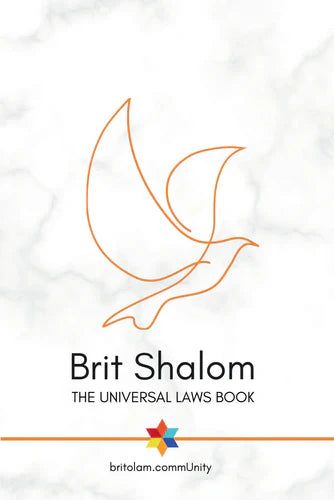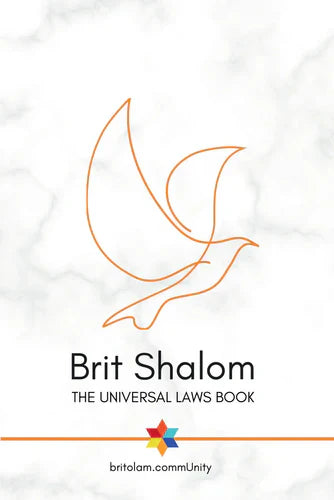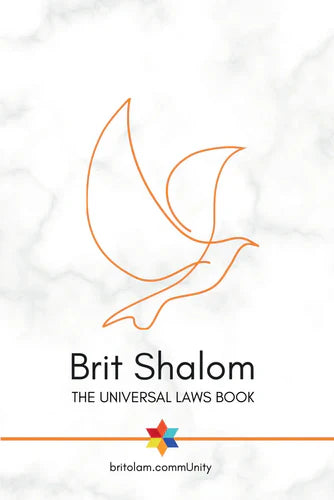Hello, today we are continuing our regular study of the book *Brit Shalom*, which provides guidance for Bnei Noach (Noahides), and we are in the second part of the first chapter, starting from paragraph four and onward.
Last time, we discussed how a person accepts the binding nature of the Noahide laws. But in addition to accepting these laws, a person is also obligated to observe them. Just as someone who accepts the laws of a country can decide whether or not to follow them, a Noahide must not only accept but also observe the commandments. This is what is stated in section four: "In addition to accepting the commandments, every person is obligated to actually observe them."
Someone who neither accepts nor observes the Noahide laws is referred to in rabbinic literature as a "goy" or "nokhri" (a gentile or foreigner). However, someone who accepts and observes these laws is referred to as a "Ben Noach" (Noahide). So, we have a distinction here, as discussed in rabbinic literature, which will help us understand the difference between what we call a "nokhri" or "goy" and someone referred to as a "Ben Noach." A Ben Noach is someone who has accepted the Noahide constitution and observes it.
Now, how does one accept and observe this constitution? A person can do this privately, without having to answer to anyone. However, there is also a formal declaration of acceptance of the seven Noahide laws. How is this done? It involves appearing before a court, much like when someone wants to convert to Judaism (become a Jew), which must be done before a court. Similarly, the acceptance of the seven Noahide commandments and the special status of a Ben Noach is done before a court of three rabbis.
Why? To ensure that the Jewish people fulfill their obligations toward Bnei Noach. The Jewish people, the Israelites, have important duties they must uphold toward Noahides—treating them with honesty and love. This requires identification, which is why the acceptance of the commandments takes place before a court.
However, it is not just about this. The Talmud states that although the Bnei Noach had originally accepted the seven commandments, they later forgot them. It was as though they had been released from this constitution, until the Torah of Moses came and reminded them that they are still obligated. Therefore, acceptance before a court restores the previous status of the Bnei Noach, as it was after the flood.



